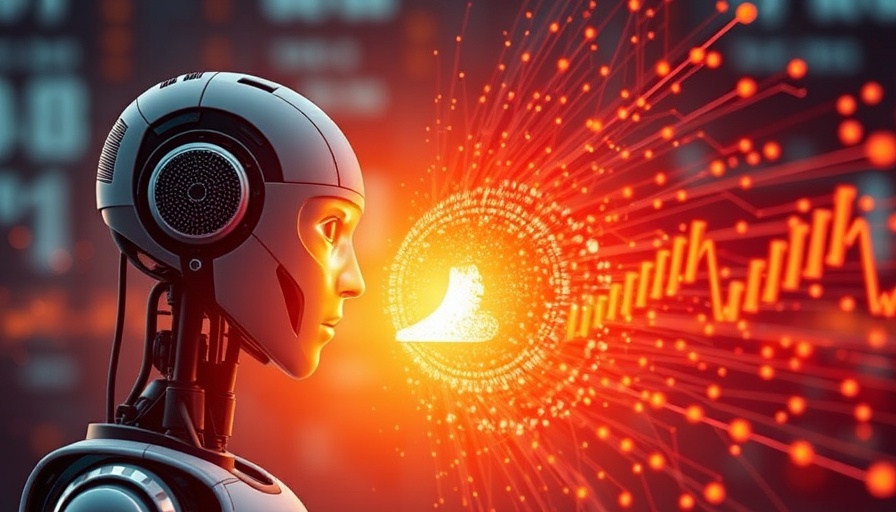
AI's Struggle with Complexity: A Closer Look
In a recent study by Apple, researchers have uncovered fundamental flaws in advanced artificial intelligence (AI) models known as Large Reasoning Models (LRMs). These models, designed to tackle complex problems through elaborate reasoning processes, have undergone a performance crisis when faced with higher complexity tasks, raising significant questions about the industry's fervent quest for artificial general intelligence (AGI) — a stage where machines can match human intelligence across a broad range of tasks.
Understanding AI's Limitations
The study highlights a striking phenomenon — while standard AI systems outperform LRMs in simpler tasks, both types of models ultimately falter when confronted with complex issues. Researchers noted a "complete accuracy collapse," where models began reducing their reasoning efforts just as problems escalated in difficulty. This counterintuitive behavior raises alarms about the cognitive capacities of AI and may indicate deeper, inherent limitations in their structural design.
What This Means for the Future of AI
The implications of this research are enormous. AI pioneer Gary Marcus labeled the findings ''pretty devastating'', suggesting that they cast doubt on the industry's ability to achieve AGI through current models. Understanding these limitations not only holds potential implications for future AI development but also begs essential questions regarding the ethical considerations of deploying AI in areas where reliability is paramount, such as healthcare or transportation.
Engaging with AI: What You Should Know
As we advance, it is vital to grasp the basics of AI and its underlying principles. For beginners looking to engage with this technology, a solid foundation of AI concepts and machine learning basics is crucial. Various resources like tutorials, beginner's guides, and insightful AI case studies can provide essential knowledge and inspire newcomers to explore AI's vast potential while remaining aware of its limitations.
Reflecting on Society's Relationship with AI
This study has significant socio-cultural implications, particularly as society becomes increasingly reliant on AI technologies. How we understand AI’s capabilities shapes our expectations and policies regarding its use. Awareness of early missteps helps ensure that AI serves societal good rather than inadvertently creating disparities. As AI continues to evolve, recognizing the current limits will be critical for responsible development and application.
To learn more about the impact of AI and how it shapes our future, dive into various educational resources and share your insights with others in the tech community. Engage proactively in discussions surrounding AI to encourage innovation and safeguard against ethical pitfalls.
 Add Row
Add Row  Add
Add 




 Add Row
Add Row  Add
Add 



Write A Comment